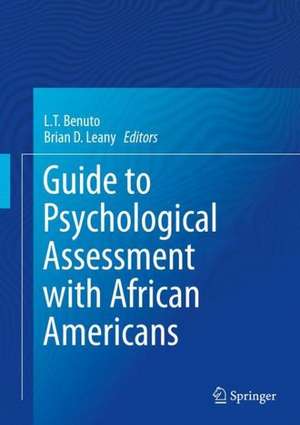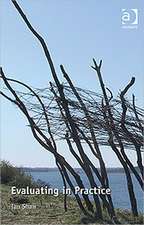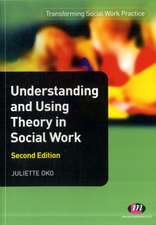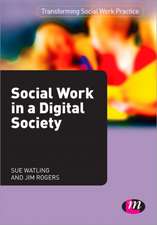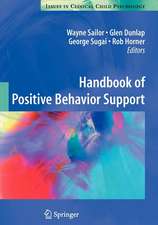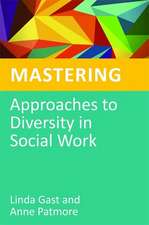Guide to Psychological Assessment with African Americans
Editat de Lorraine T. Benuto, Brian D. Leanyen Limba Engleză Hardback – 21 noi 2014
The Guide to Psychological Assessment with African Americans aims to close the evaluation/therapy gap by giving practitioners the tools to choose appropriate instruments while respecting client individuality. Expert contributors analyze scarce and far-flung data, identify strengths and limitations of measures and norms in their use with African-American clients, and advise on avoiding biases in interpreting results. The editors advocate for a theory-based hypothesis-testing approach to assessment when empirical evidence is lacking, and offer guidelines for decision-making that is effective as well as ethnically aware. The Guide's findings, insights, and practical information cover the gamut of test and diagnostic areas, including:
- IQ and personality.
- Generalized anxiety disorder, panic, and phobias.
- Neuropsychological assessment, cognitive decline, and dementia.
- Mood disorders and suicidality.
- Forensic assessment, risk, and recidivism.
- Measures specific to children and adolescents.
- Plus PTSD, substance disorders, eating pathology, and more.
Expertly complementing cross-cultural treatment texts, the Guide to Psychological Assessment with African Americans stands out as a trustworthy resource for treatment planning useful to clinical psychologists, neuropsychologists, and clinical social workers.
| Toate formatele și edițiile | Preț | Express |
|---|---|---|
| Paperback (1) | 376.06 lei 43-57 zile | |
| Springer – 10 sep 2016 | 376.06 lei 43-57 zile | |
| Hardback (1) | 416.35 lei 43-57 zile | |
| Springer – 21 noi 2014 | 416.35 lei 43-57 zile |
Preț: 416.35 lei
Preț vechi: 438.26 lei
-5% Nou
Puncte Express: 625
Preț estimativ în valută:
79.67€ • 83.40$ • 65.92£
79.67€ • 83.40$ • 65.92£
Carte tipărită la comandă
Livrare economică 07-21 aprilie
Preluare comenzi: 021 569.72.76
Specificații
ISBN-13: 9781493910038
ISBN-10: 1493910035
Pagini: 344
Ilustrații: XI, 332 p. 1 illus.
Dimensiuni: 178 x 254 x 23 mm
Greutate: 0.82 kg
Ediția:2015
Editura: Springer
Colecția Springer
Locul publicării:New York, NY, United States
ISBN-10: 1493910035
Pagini: 344
Ilustrații: XI, 332 p. 1 illus.
Dimensiuni: 178 x 254 x 23 mm
Greutate: 0.82 kg
Ediția:2015
Editura: Springer
Colecția Springer
Locul publicării:New York, NY, United States
Public țintă
Professional/practitionerCuprins
Introduction to psychological assessment with African Americans. –
Conducting Assessments and Psychological Evaluations with African American Clients.- Cross-Cultural Considerations with African American Clients: A Perspective on Psychological Assessment.- The Assessment Interview: A review of Structured and Semi-Structured Clinical Interviews available for use among African American Clients.- Assessing Personality using Self-Report Measures with African American Clients.- IQ Testing and the African American Client.- Assessing Effort & Malingering with the African American Client.- Assessing Mood Disorders and Suicidality in African Americans.- Assessment of Generalized Anxiety Disorder, Panic, and Phobias with African Americans.- Assessment of Obsessive Compulsive Disorder with African Americans.- Assessment of Posttraumatic Stress Disorder with African Americans.- Assessing Substance-Related Disorders in African Americans.- Assessing Eating Pathology in African Americans.- Assessing for Personality Disorders in the African American Client.- Screening for Cognitive Decline & Assessment of Dementia with African Americans.- Assessing Psychosis in African-American Clients.- Assessing Somatoform Disorders with the African American Client.- School-based Assessment with African American Children and Adolescents.- Neuropsychological Assessment with African American Clients.- Assessing Risk and Recidivism in African-Americans.- Forensic Assessment with the African American Client.
Notă biografică
Lorraine Benuto received her doctoral degree in clinical psychology from the University of Nevada, Las Vegas. She is a licensed clinical psychologist and a post-doctoral scholar at the University of Nevada, Reno, where she provides treatment to victims of sexual assault, sexual abuse, and child physical abuse. She is project coordinator and therapist of the Victims of Crime Treatment Center at the University of Nevada, Reno. Dr. Benuto completed her APA-accredited internship at the VA in San Juan, Puerto Rico where she delivered psychological services to a culturally diverse clientele presenting with depression and anxiety. Dr. Benuto has extensive experience delivering evidence-based treatments and conducting psychological assessments with the Latino population. She has delivered professional presentations at state, national, and international conferences on topics related to cultural competence and is co-editing Handbook of Adolescent Health Psychology for Springer. Brian Leany is a licensed clinical psychologist in the states of Nevada and California. Dr. Leany received his masters and doctoral degrees in psychology at the University of Nevada Las Vegas, conducting research in the neuropsychological research lab. Here he studied neuropsychological assessment and disorders such as schizophrenia, bipolar disorder and traumatic brain injury. Dr. Leany has written several chapters in the field of multicultural studies and diversity, and instructs graduate and undergraduate courses in these fields. Dr. Leany spent a year honing his skills in neuropsychological assessment with diverse populations at the University of Puerto Rico’s hospital. Here he worked in the pediatric department of neurology assessing individuals with multiple sclerosis and epilepsy, as well as pediatric neurodevelopmental disorders such as attention deficit/hyperactivity disorder, autism, and mental retardation.
Textul de pe ultima copertă
The movements toward cultural sensitivity and evidence-based practice are watershed developments in clinical psychology. As a population with a long history of substandard treatment from mental health systems, African Americans have especially benefitted from these improvements. But as with other racial and ethnic minorities, finding relevant test measures in most psychological domains presents clinicians with an ongoing challenge.
The Guide to Psychological Assessment with African Americans aims to close the evaluation/therapy gap by giving practitioners the tools to choose appropriate instruments while respecting client individuality. Expert contributors analyze scarce and far-flung data, identify strengths and limitations of measures and norms in their use with African-American clients, and advise on avoiding biases in interpreting results. The editors advocate for a theory-based hypothesis-testing approach to assessment when empirical evidence is lacking, and offer guidelines for decision-making that is effective as well as ethnically aware. The Guide's findings, insights, and practical information cover the gamut of test and diagnostic areas, including:
Expertly complementing cross-cultural treatment texts, the Guide to Psychological Assessment with African Americans stands out as a trustworthy resource for treatment planning useful to clinical psychologists, neuropsychologists, and clinical social workers.
The Guide to Psychological Assessment with African Americans aims to close the evaluation/therapy gap by giving practitioners the tools to choose appropriate instruments while respecting client individuality. Expert contributors analyze scarce and far-flung data, identify strengths and limitations of measures and norms in their use with African-American clients, and advise on avoiding biases in interpreting results. The editors advocate for a theory-based hypothesis-testing approach to assessment when empirical evidence is lacking, and offer guidelines for decision-making that is effective as well as ethnically aware. The Guide's findings, insights, and practical information cover the gamut of test and diagnostic areas, including:
- IQ and personality.
- Generalized anxiety disorder, panic, and phobias.
- Neuropsychological assessment, cognitive decline, and dementia.
- Mood disorders and suicidality.
- Forensic assessment, risk, and recidivism.
- Measures specific to children and adolescents.
- Plus PTSD, substance disorders, eating pathology, and more.
Expertly complementing cross-cultural treatment texts, the Guide to Psychological Assessment with African Americans stands out as a trustworthy resource for treatment planning useful to clinical psychologists, neuropsychologists, and clinical social workers.
Caracteristici
First book devoted to psychological assessment of African Americans Provides specific guidelines for working with African American clients Includes up-to-date research on psychological tests used with African Americans Counteracts fact that African Americans are underrepresented in the cultural sensitivity movement despite being one of the largest ethnocultural minority groups in the USA Includes supplementary material: sn.pub/extras
